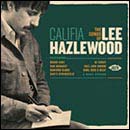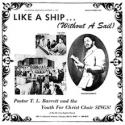THE WALKMEN - Lisbon
 Sunday, September 19, 2010 at 04:45PM
Sunday, September 19, 2010 at 04:45PM  When The Walkmen released You & Me two years ago, it signified a profound moment of freedom for the group. Freedom from what, you ask? Their hit song, 2004's "The Rat". Propulsive and pissed off, it registered with listeners immediately, slaying everything in its path—including, unfortunately, the band's own catalogue. While 2006's underrated One Hundred Miles Off played it sloppier and dirtier (even dipping into hardcore tempos for a couple tracks), its drunken bang and clatter fell victim to cries of "Where's 'The Rat II'?", and audiences fell away. Even if this was merely the inevitable process of shedding fairweather fans, it had to have hurt a little.
When The Walkmen released You & Me two years ago, it signified a profound moment of freedom for the group. Freedom from what, you ask? Their hit song, 2004's "The Rat". Propulsive and pissed off, it registered with listeners immediately, slaying everything in its path—including, unfortunately, the band's own catalogue. While 2006's underrated One Hundred Miles Off played it sloppier and dirtier (even dipping into hardcore tempos for a couple tracks), its drunken bang and clatter fell victim to cries of "Where's 'The Rat II'?", and audiences fell away. Even if this was merely the inevitable process of shedding fairweather fans, it had to have hurt a little.
So the band did exactly what bands should (but rarely) do—they stuck to their guns and made a record that defiantly turned the other cheek. You & Me was the first album by The Walkmen to fully commit to their unsung counterpoint to the "The Rat"s careening brawler: the doomed but resilient romantic. Even that record's magnificently wailed single, "In The New Year", was more about tender hope than bitterness. With a slow burn that nicely matched You & Me's pacing, listeners of a different kind now flocked to the band—the kind well won over by a full album's merits rather rather than those of a single song.
All of this brings us to Lisbon, an album that is as sunny and at ease with itself as the vibe of its namesake city. The Walkmen may have worked very hard making this record (by some accounts around 30 songs were considered for the LP), but it sounds anything but laboured. I suspect that's because The Walkmen are now in a position where they truly understand how to best utilize their talents. The patience and atmosphere they mastered on You & Me blossoms here into a wonderfully concise set that is immediately worth revisiting as soon as it concludes. The band just sounds so in control, so expressive—even the wild rush of "Angela Surf City" is perfectly balanced, hurtled forward by Matt Barrick's humming engine of a drum part. And whether live or on record, singer Hamilton Leithauser has never sounded as good as over the last few years. For all of the hell-raising fury that he is capable of, he's often best wrapping his pipes around a whisky waltz or bleary group-hug of a shanty. Like a dropped ripe peach, he's tender and sweet, but sticky, bruised and prickly. When he and his formidable band are in the intoxicating throes of cataloguing their regrets, their dreams, their loves and their losses, it's a real treat.
 Pop/Rock
Pop/Rock 

















